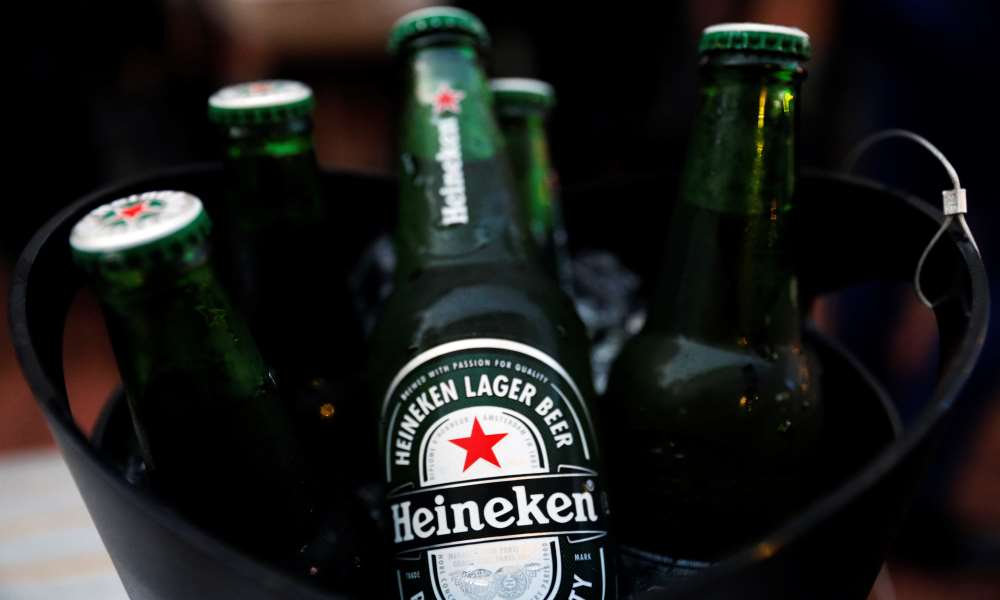Company news in brief
Heineken’s beer volumes downDutch brewing giant Heineken said globally, beer volumes fell more than 4% in the three months to end-September, with about a 5% decline year to date.
However, revenue still picked up 2% in the quarter to €9.6 billion (about N$194 billion) and is up 4.7% for the year to date. Price mix on a constant geographic basis was up 9.5% for the quarter, but Heineken said it was seeing some green shoots.
CEO Dolf van den Brink said in a statement accompanying the results that the group was seeing a gradual improvement in its business performance, albeit slower than it would like.
"In half of our markets, volume trends are improving. Similarly, in just over half of our markets, we are gaining or holding market share," he said.
South Africa and Nigeria were hardest hit by beer volume declines as they grappled with intensifying competition and weak economic conditions.
The owner of Amstel saw South African beer volumes fall more than 20% in its third quarter, citing the "challenging competitive environment at the time of the integration of Distell".
Breaking down the beer volume figures for other regions, Van den Brink said they increased 2.2% in the Americas, with strong performances in Brazil and Mexico, while volumes in Asia Pacific were improving, even though they fell by more than 4.6%.
In Europe, which reported a 7.6% decline in volumes, he said trends improved in September following "adverse weather" in July and August. – Fin24
Sibanye could cut over 4 000 jobs
Sibanye-Stillwater has launched a retrenchment process that could affect over 4 000 employees at four shafts, including at Marikana, and associated services at its South African platinum operations.
In the face of high operating costs and lower commodity prices, the precious metals producer on Wednesday announced plans to enter into consultations with organised labour and other affected non-unionised employees regarding the possible restructuring of four shafts.
The group said the proposed restructuring could affect up to 4 095 workers, comprised of 3 500 employees and 595 contractors.
"Above inflation increases in key cost components such as electricity and water tariffs, wages, fuel and other consumables costs over several years, combined with the recent decline in PGM prices during [the] 2023 year to date, has significantly impacted the profitability of the global PGM industry, including Sibanye-Stillwater's SA PGM operations," the company explained in a statement.
"Certain operating shafts are now loss-making and pose a risk to the sustainability of the remaining operations."
Sibanye is also in the process of cutting jobs at its gold operations, announcing in September that it could cut almost 3000 jobs at its Kloof 4 shaft at the gold mining operation near Carletonville.
Sibanye, valued at about R67 billion on the JSE, had about 64 000 employees as of its 2022 year, including about 36 800 at its PGM operations. – Fin24
Famous Brands eyes Debonairs in DRC
Africa's largest restaurant franchisor, Famous Brands, is eyeing "cautious" expansion into three new African markets, the Democratic Republic of Congo (DRC), Egypt and Côte d’Ivoire with its Steers and Debonairs brands, and remains committed to its growth as a group.
The owner of brands including Wimpy, Steers and Debonairs Pizza, reported that while revenue rose 10% to R3.9 billion in the six months to end-August, profit fell about a fifth to R220 million, hit by higher finance and input costs, and additional support for franchisees.
Famous Brands said South Africa's consumers had proved more resilient than expected, and returned to shopping centres, but given pressure on their wallet were looking for value meals, discounts, and opting for smaller meals.
Valued at about R6 billion on the JSE Famous Brands operates just over 2 500 restaurants in SA, with 311 in Africa and the Middle East, and 65 in the UK. South Africa accounts for over 92% of its revenue.
During its first half, the group had added 50 new restaurants, with 109 planned for its second half. The group remains confident in its financial position, but general conditions are challenging for a growing company, with a focus on alternative power.
Group debt had picked up about a quarter to 25% during the period, and finance costs 35%, while the group upped its capital spend 18% to R71 million.
The group upped its interim dividend by just over 6% to 138c per share, about a R138 million payout, expressing confidence in its financial stability and cash flows. – Fin24



